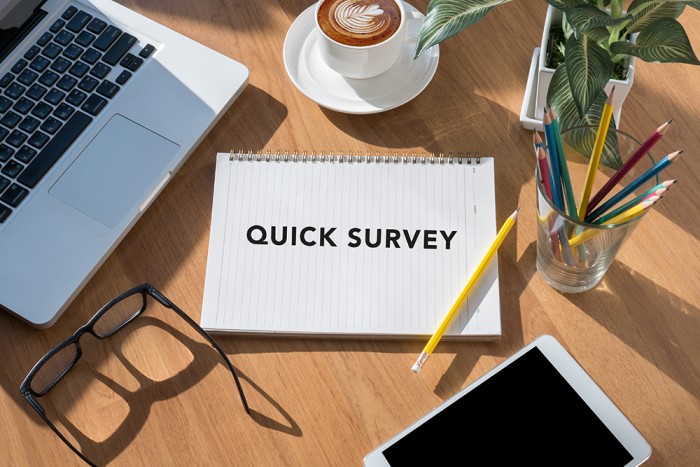The Senate Aging and Youth Committee has announced an upcoming public hearing on Thursday, May 20, 2021 at 11:00 am. This public hearing will focus on the current status and needs of long-term care facilities one year after COVID-19. This hearing will be live streamed and will also be archived for future viewing.
Pennsylvania to Follow Relaxed Federal Guidance on Masks for Fully Vaccinated

Finance and Reimbursement Committee Meeting Materials
The recording of the Finance and Reimbursement Committee meeting is available on the members only section of RCPA’s website, which is accessible here. The PowerPoint from the April 2021 Mercer/ODP webinar regarding Intermediate Care Facilities for Individuals with Intellectual Disabilities (ICF/ID) budgets is available here.
For more information about the Employee Tax Credit program and Synergi, follow this link to the Synergi Partners RCPA landing page. You can also reach out directly to Jeff Walker or Clint Foster.
CMS Releases Guidance for Implementation of the American Rescue Plan
Today CMS released guidance to the State Medicaid Directors regarding the 10% increased Federal Medicaid Assistance Percentage (FMAP) for certain Medicaid expenditures for Home and Community-Based Waiver Services (HCBS). States must use the funds to supplement and not supplant state funds expended for HCBS Waiver Services in effect as of April 1, 2021, and states must use state funds equivalent to the amount of federal funds attributable to the increased FMAP to implement or supplement the implementation of one or more activities to enhance, expand, or strengthen HCBS under the Medicaid program.
The purpose of this letter is to provide guidance to states on the implementation of section 9817 of the American Rescue Plan (ARP), as well as to describe opportunities for states to strengthen the HCBS system in response to the COVID-19 Public Health Emergency (PHE), increase access to HCBS for Medicaid beneficiaries, adequately protect the HCBS workforce, safeguard financial stability for HCBS providers, and accelerate long-term services and supports (LTSS) reform under section 9817 of the ARP.
This increased federal funding can help states increase community living options for people with disabilities, in accordance with Title II of the Americans with Disabilities Act, 42 U.S.C. §§ 12131–12134, as interpreted by the Supreme Court in Olmstead v. L.C., 527 U.S. 581 (1999), which requires public entities to administer services to individuals with disabilities in the most integrated setting appropriate to their needs.
In addition, this letter updates Medicaid retainer payment policy for HCBS providers during the COVID-19 PHE.
The letter outlines additional guidance.
CDC Says Fully Vaccinated Americans No Longer Need Masks Indoors or Outdoors in Most Cases
D&A and Mental Health Member APA Survey Reopened & Extended To May 20, 2021
As part of RPCA’s ongoing effort with members and stakeholders regarding the Alternative Pay Arrangements/Agreements (APAs), we are asking members to complete this brief APA survey.
We respectfully request that the survey be completed as the APAs apply to your Drug & Alcohol, Children’s, and Adult Mental Health services continuum. The data we collect will be instrumental in our collective efforts with the Department of Human Services (DHS) and managed care organizations regarding strategic fiscal considerations, as the current APAs are set to end on Wednesday, June 30, 2021.
It has been requested we extend the survey date. The survey will now be available until close of business Thursday, May 20, 2021. Thank you, and if you have questions, please contact RCPA Director of Children’s Division Jim Sharp or your RCPA Policy Director.
OMHSAS 2020 Behavioral Health Telehealth Report

The Office of Mental Health and Substance Abuse Services (OMHSAS) is pleased to share the 2020 Behavioral Health Telehealth Report, developed in collaboration with the OMHSAS Telehealth Steering Committee and Mercer Government Services Consulting. This report provides recommendations for the future of telehealth after the resolution of the COVID-19 Public Health Emergency. The work of the Steering Committee and other stakeholders has been and will continue to be vital in ensuring that the behavioral health needs of Pennsylvanians continue to be met. The report is available on the OMHSAS website.
If you have questions or feedback, please contact RCPA Policy Director Jim Sharp. If you have questions regarding this report, please email OMHSAS directly.
DOH: Pfizer-BioNTech COVID-19 Vaccine Fully Approved For Use In 12- To 15-Year-Olds
Smart Homes Made Simple Webinar
Are They Always Listening? How Secure is My Smart Speaker?
Wednesday, June 2, 2021 from 12:00 pm–12:45 pm
30 minutes of interactive learning, 15 minutes for questions
This presentation will answer questions related to privacy and security with smart speakers such as Amazon Alexa and Google Nest. Attendees will learn:
- How smart speakers work;
- How their security compares to other everyday devices like cell phones;
- How smart speakers “listen” and “understand”;
- What information speakers retain; and
- How you can protect yourself.
Learn more and register here.
This webinar is hosted by Pennsylvania Assistive Technology Foundation (PATF) as part of the Smart Homes Made Simple project. Learn more about the project at SmartHomesMadeSimple.org.
Pennsylvania Assistive Technology Foundation Toll Free Voice 888.744.1938 | Voice 484.674.0506 | Fax 484.674.0510 | Email patf@patf.us | www.patf.us
This project is supported by a grant from the Pennsylvania Developmental Disabilities Council; in part by grant number 1901PASCDD-02 from the U.S. Administration for Community Living (ACL), Department of Health and Human Services, Washington, D.C. 20201. Grantees undertaking projects with government sponsorship are encouraged to express freely their findings and conclusions. Points of view or opinions do not, therefore, necessarily represent official ACL policy.
This session will be fully accessible, and the recording, transcript, and slides will be made available. If you have any questions or need assistance with registering, please contact Susie Daily at 888-744-1938 or by email.
Wolf Administration and Montgomery County Officials Discuss Importance of Substance Use Prevention
Yesterday, the Pennsylvania Departments of Drug and Alcohol Programs (DDAP) and Education (PDE) and Montgomery County Officials highlighted the importance of utilizing effective, evidence-based prevention efforts for reducing substance use disorder among youth across the commonwealth.
“Prevention is our first line of defense in assuring our children grow up to live healthy, productive lives,” said DDAP Secretary Jen Smith. “With increases in substance use, trauma, adverse childhood experiences, and other risk factors due to the COVID-19 pandemic, intensifying our prevention efforts to address these risk factors is absolutely critical.”
Read the full press release here.
















